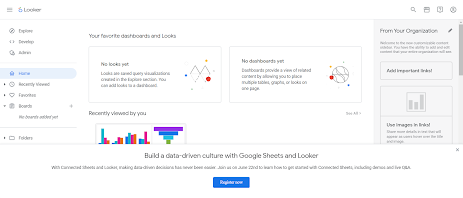Looker vs. Power BI vs. Tableau: Unraveling the Key Differences and Choosing the Right Analytics Solution

In today's data-driven world, businesses have an array of analytics solutions to choose from. Looker, Power BI, and Tableau are three prominent players in the business intelligence and analytics market. Each of these platforms offers unique features and capabilities that cater to different user needs. In this blog post, we will explore how Looker stands out from Power BI and Tableau, highlighting the key differences and helping you make an informed decision when selecting the right analytics solution for your business. Approach to Data Modeling and Connectivity: Looker : Looker takes a semantic modeling approach, allowing users to create a unified data model that abstracts the complexities of underlying data sources. This enables users to explore and analyze data consistently, regardless of its original structure or location. Looker also provides robust connectivity options to various databases and data warehouses. Power BI : Power BI offers a wide range of data connectors and inte...